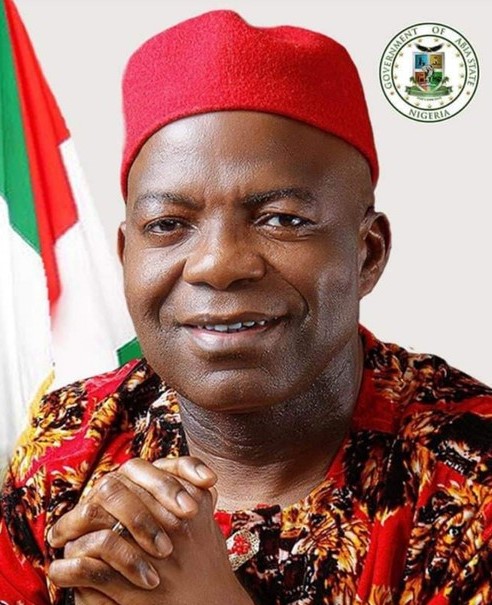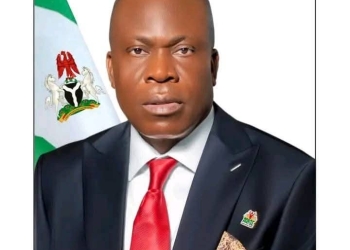By Etim Etim
Corruption has been in the news lately, grabbing headlines and seizing national attention. In the week that Yahaya Bello arrayed the police against the EFCC and prevented the agency from arresting him, Gov. Alex Oti of Abia State made startling revelations on the humungous corruption perpetrated by his predecessors. He announced that on assumption of duty last year, he had commissioned one of the biggest audit firms in the country to conduct a forensic examination of the major contracts awarded by his predecessors and the audit reports recently submitted to him showed that some contracts were just fraudulent activities designed to steal money. The governor listed them as N79.3 billion paid to seven contractors for contracts that were not executed at all up till today; another N15.9 billion paid to 63 contractors with no supporting documents anywhere in the state and another N12 billion paid to two contractors for contracts that do exist. Of these, N10 billion was paid in September 2020 to a contractor for the construction of Abia State Airport. ‘’We have spent time looking for the airport, but we have failed to locate it’’, the governor said, indicating that he had reported the matter to the security agencies. To drive home the enormity of the crime, Gov. Oti stated that the N10 billion stolen through phantom airport fraud was the exact amount he spent to clear backlog of salaries and pensions he inherited.
I was not particularly shocked by Gov. Oti’s revelations because scams occur almost daily in all the states of the federation and the FCT. In Akwa Ibom State, an ICT center is lying uncompleted not far from the Government House. The contract for construction was fully paid for, but the job was never done, and the two succeeding governors that came after refused to complete it. Gov. Umo Eno has not even mentioned it. Contract for the construction of a terminal building of the state-owned airport was awarded by another governor and the foreign contractor paid in full. Again, the job was not done. Another governor came, re-awarded it to another contractor, paid handsomely for it, but turned around to create his own schemes, awarding a different set of fraudulent contracts of his own for the building of a toothpick factory and dairy farm. Neither the toothpick factory nor the dairy farm has been found until this day, but the terminal building has made progress, and hopefully, would be completed by the incumbent governor. In neighbouring Cross River State, I am told that a former governor known for ‘olympopo budgets’ was a specialist in awarding illusory projects, fully paid for. Imo State under Rochas Okoracha deserves a book to be written on it.
Everywhere you go around the country, phony schemes are used as conduit pipes to steal from the governments. The war between the two political gladiators in Rivers State is connected with sharing of the proceeds of contract scams. The incumbent governor’s decision to turn his back on the agreement he had with his predecessor has apparently saved the state billions of Naira. In Kogi, Gov. Usman Dodo is still loyal to his predecessor, Yahaya Bello. He helped him escape arrest by the EFCC. The same EFCC had last year indicted a former governor of Zamfara State, Alhaji Matawale, who is now the Minister of State, Defence, of conspiracy to commit fraud and money laundering to the tune of N70 billion. I’m sure that case has died a natural death. And who is the new governor of Zamfara? He was once a bank executive widely mentioned by the EFCC in the Diezani Allison-Madueke case years ago. These people keep reinventing themselves, from one lucrative job to another.
The magnitudes and complexities of corruption in government houses across the country, including Aso Rock itself, are bewildering. But it is the standoff between Yahaya Bello and the EFCC that has raised questions about the fragility of the Nigerian state. If Bello could succeed in employing the services of the Nigerian police against the authority of the Nigerian state; and if Gov. Dodo could successfully mobilize a reinforcement of the Nigerian police to spirit Bello out of his home, thus subverting the authority and sovereignty of the state, you can imagine what the governors can do when they have state police. Bello and Dodo have shown how weak, fragile and vulnerable our institutions are and the extent the corrupt ones can go to capture the state and escape justice. A criminal suspect using state apparatus to defeat and embarrass the country shows how far we’ve sunk. Corruption continues to suffocate Nigeria, constituting our single biggest existential threat. It fuels terrorism, banditry, kidnapping and other forms of violent crimes in the country. It denies our people education, healthcare, roads, rails and other amenities we deserve. Corruption, incompetence and decadence in all facets of our national life are the main reasons Nigeria has become a big global embarrassment. It’s never been this bad!
In 2022, Yahaya Bello wanted to be President. He launched an ambitious campaign for APC presidential nomination in the party’s primaries. Although he scored a paltry 47 votes, his audacity did not go unnoticed. There’ve been speculations that he’s warming up for another bid in 2027. What kind of President will he be? At the federal level, the Tinibu administration is struggling with its own moral dilemma. For awarding a N15 trillion contract for the 700-km Lagos-Calabar highway to Hitech Construction Company (we all know those behind this company and their antecedents in Lagos) without due process, the government has received condemnations from many, including top opposition leaders like Atiku Abubarkar. Many are then asking if the administration possesses any iota of moral rectitude to even raise a voice against corruption.
Etim is a Journalist and a Political Analyst based in Abuja






